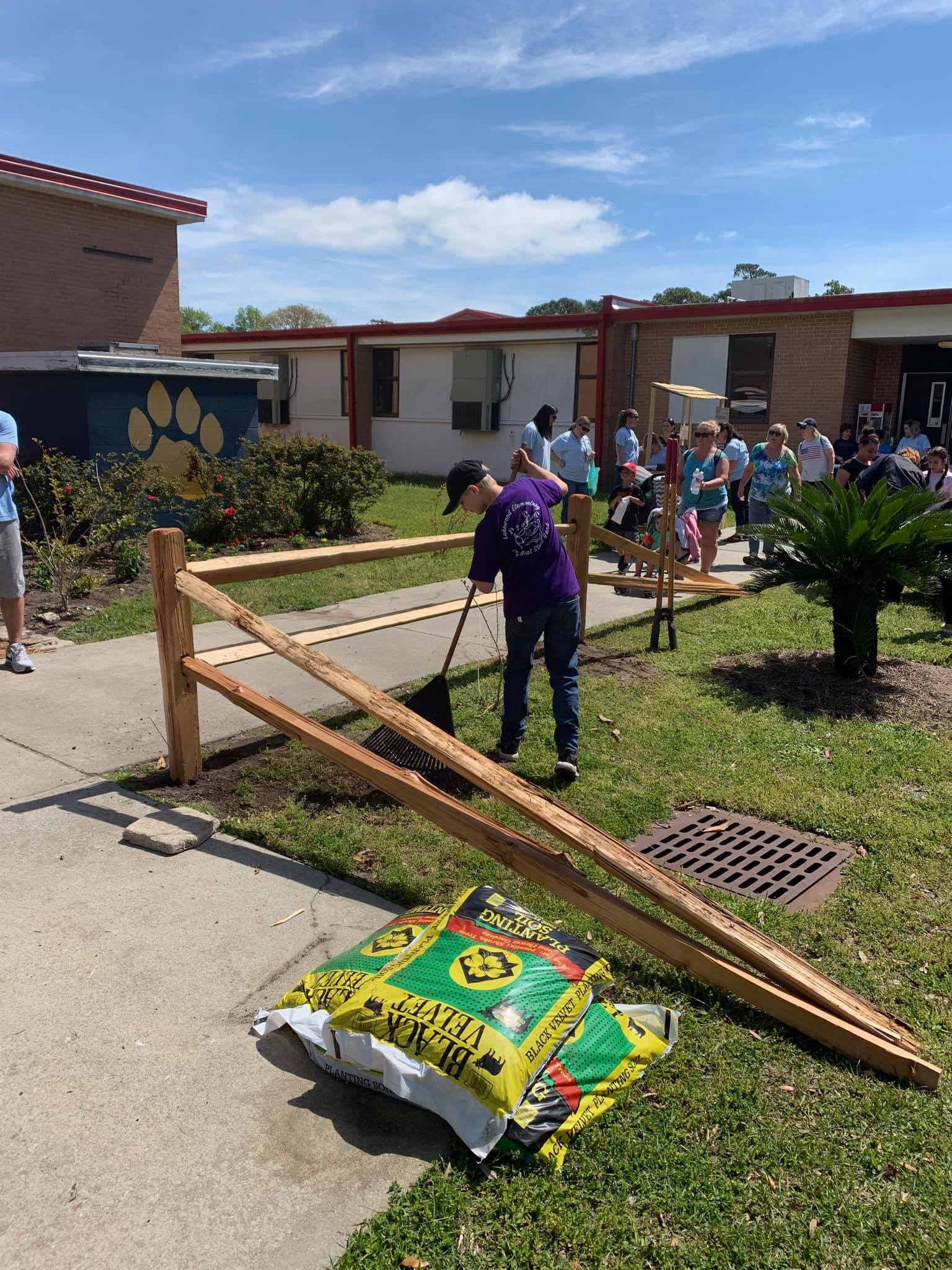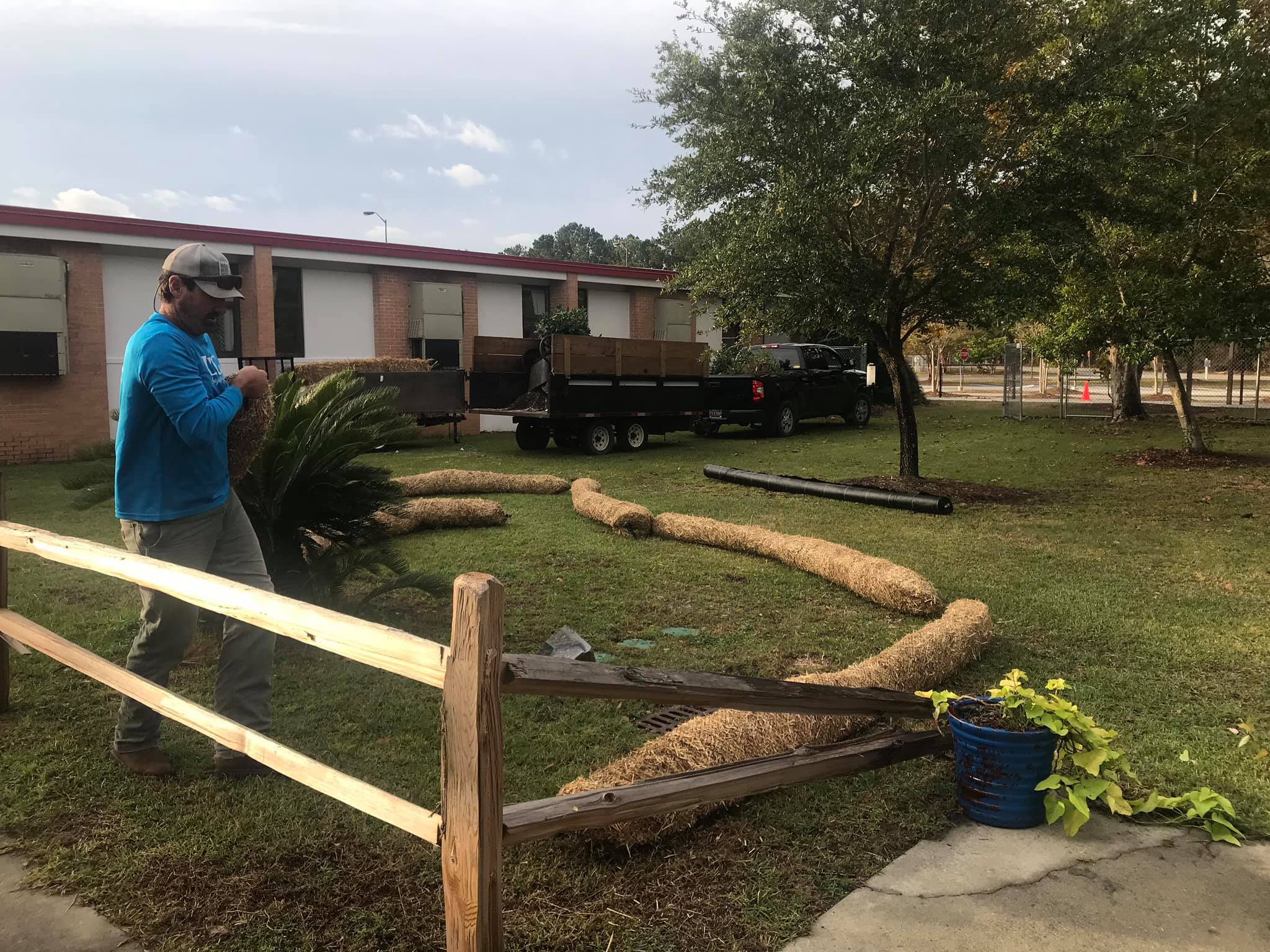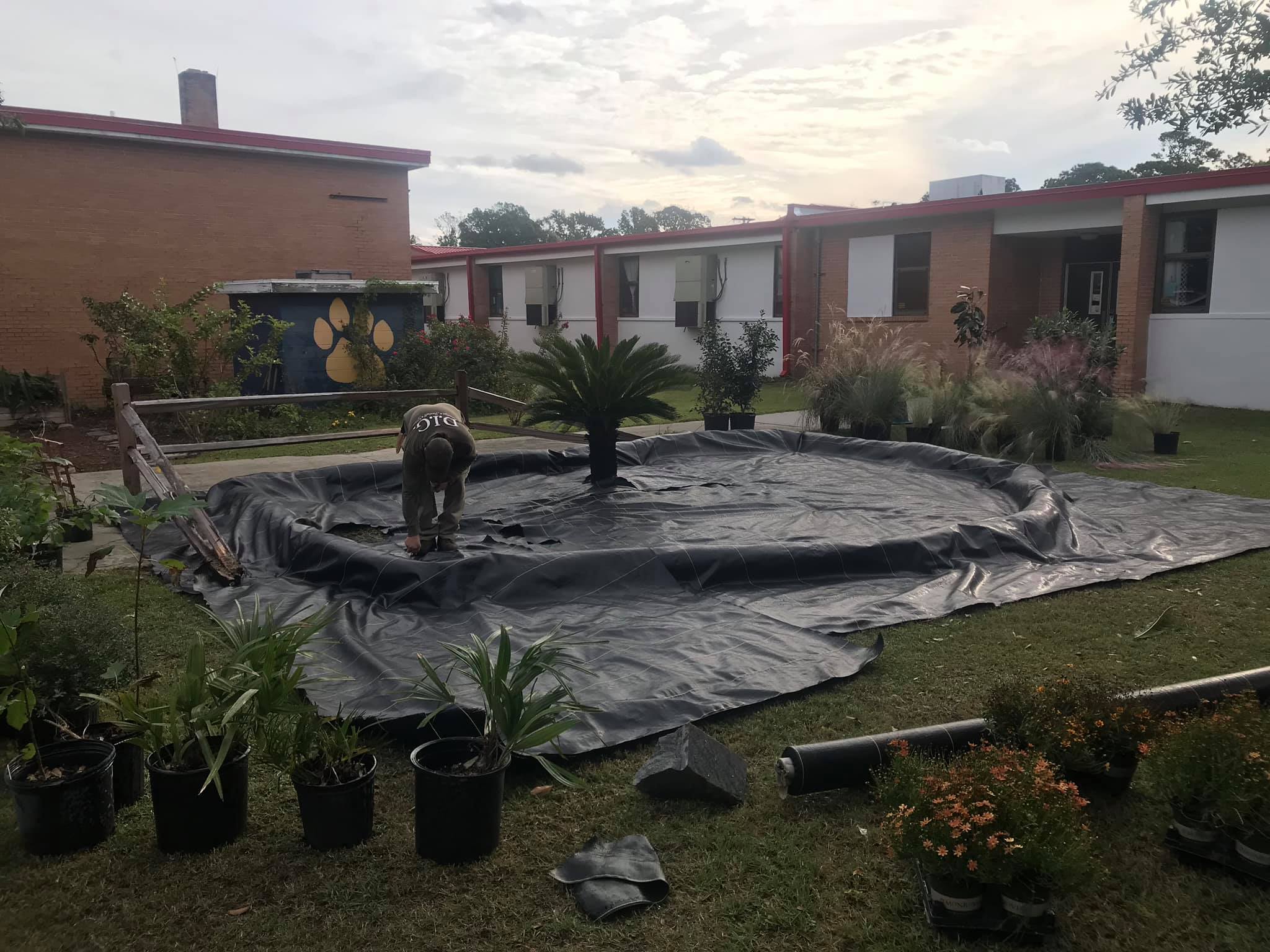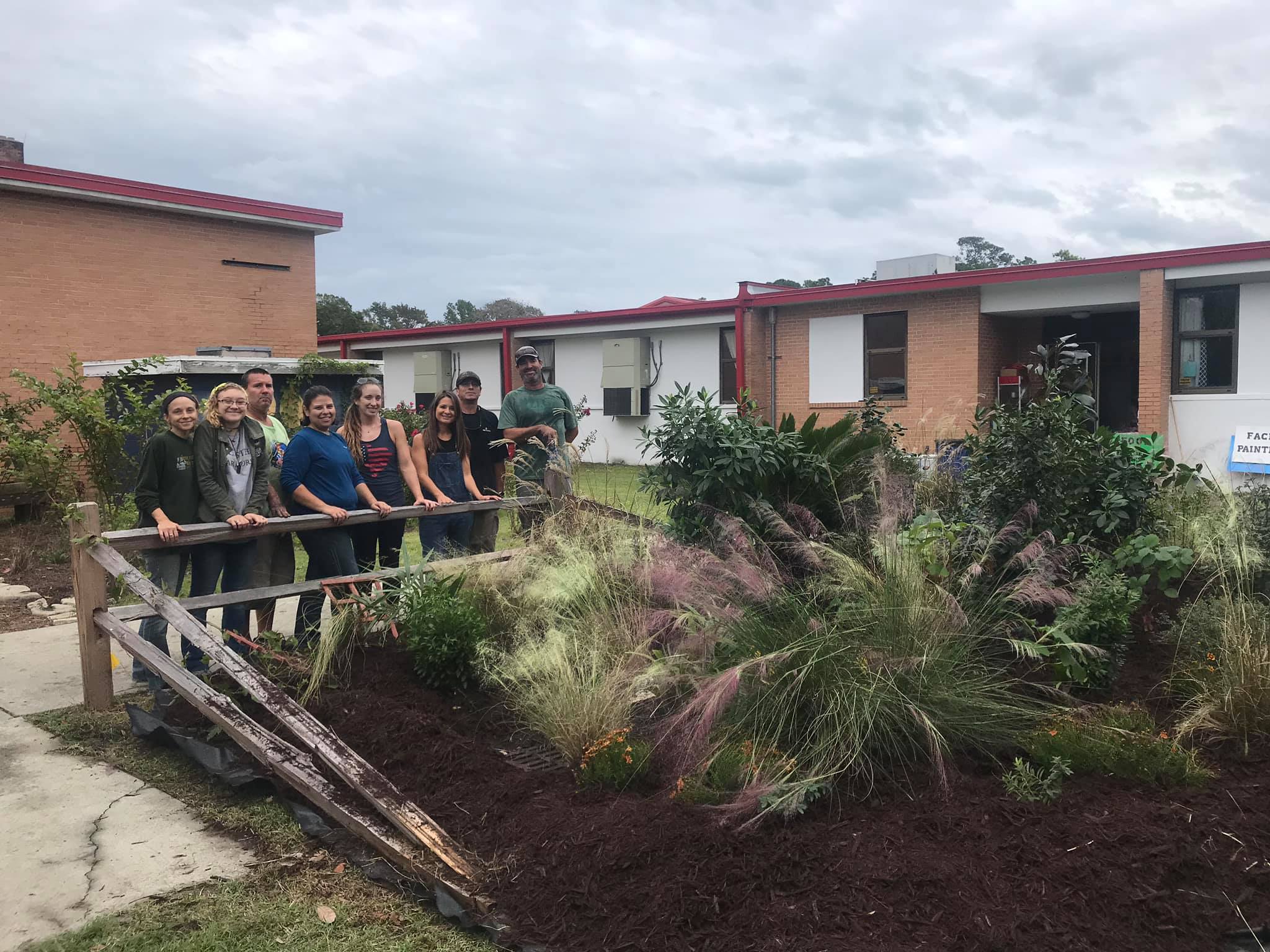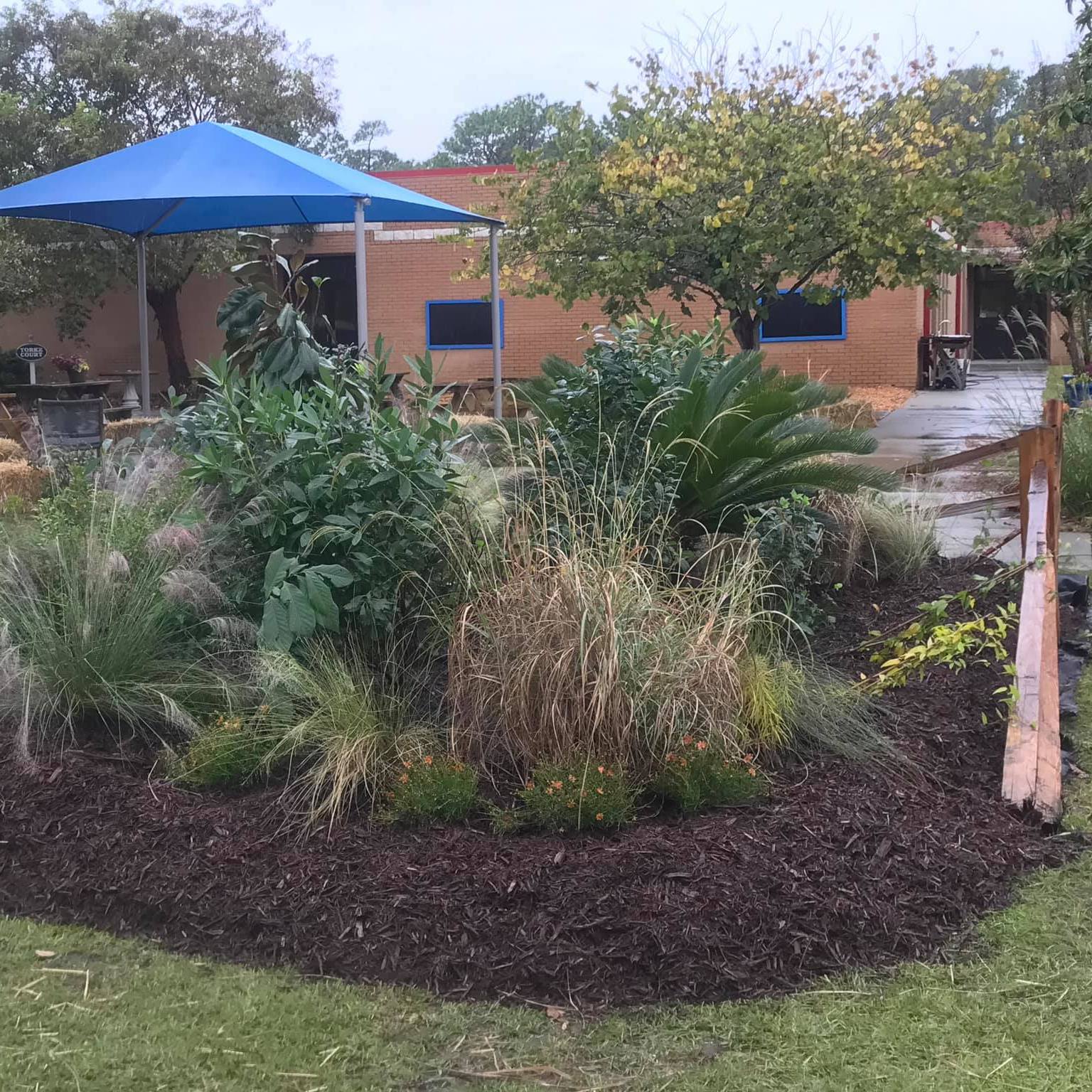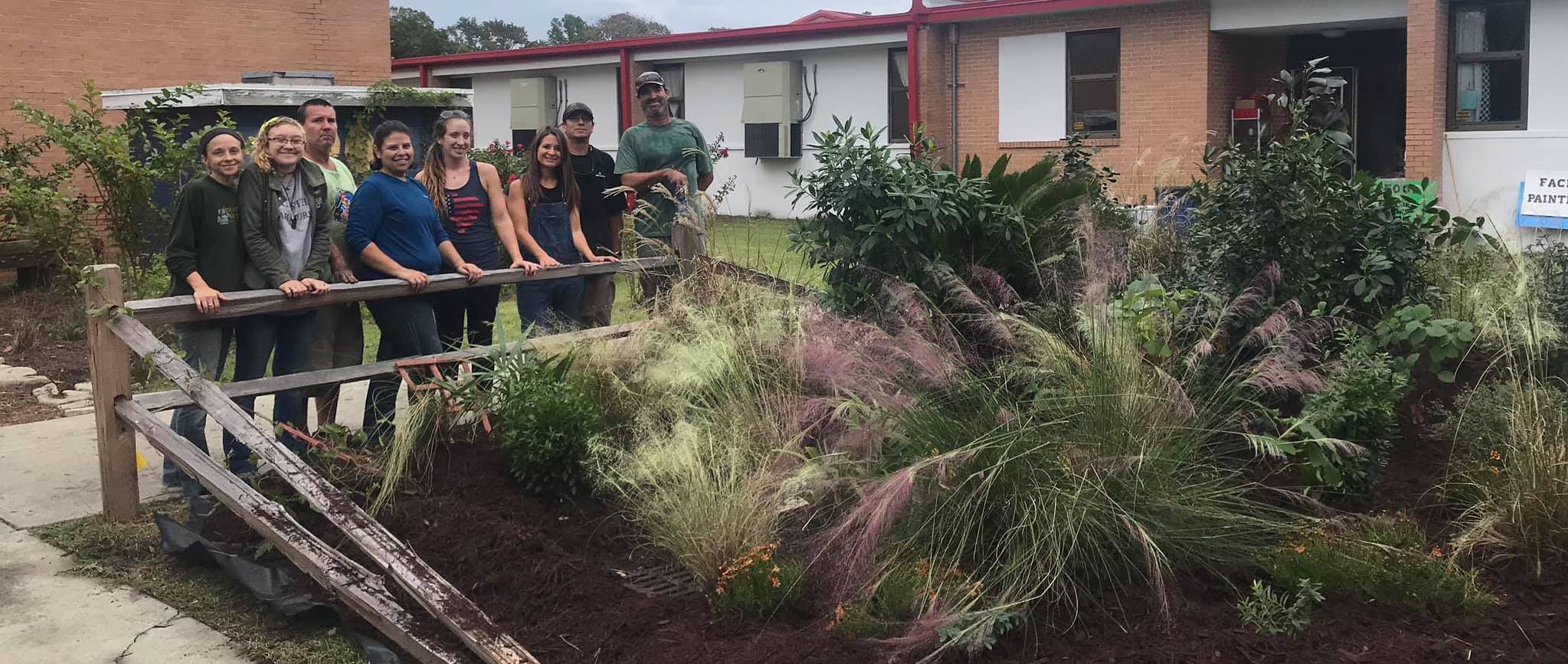
Ocean Friendly Gardens
A Simple Approach
OFG standards use this simple approach everywhere possible: contouring landscapes for rainwater retention; creating living soil to sponge up water, filter pollution and sequester carbon; and installing climate-appropriate plants to create wildlife habitat and a sense of place.
The Ocean Friendly Gardens (OFG) Program is Surfrider Foundation's volunteer-run landscape education, hands-on training and advocacy program. In addition to providing valuable information to property owners on how landscapes and hardscapes can prevent water pollution, Surfrider chapters are using this program to encourage landscape professionals to incorporate the program’s principles into their business practices. Chapters also use the program to motivate local governments to support OFG-oriented policy changes for existing and new development.
Water runoff is the #1 source of ocean pollution in urban areas, contributing to flooding and wasting water that can irrigate landscapes and replenish groundwater.
What is an Ocean Friendly Garden?
OFGs apply CPR – Conservation, Permeability and Retention – to landscapes, hardscapes and streets. They allow soil to act like a sponge to help restore the helpful functions of watersheds like protecting local water supplies and preventing pollution from reaching the ocean. They also reduce flooding during storm events, pull carbon from the air and into plants and soil, and create wildlife habitat (above is a typical OFG and below is a curb cut flowing into a bio-swale).
OFGs apply what is coming to be known around the country as the watershed approach. The principles are the same: healthy, living soil; retain rainwater; climate-appropriate plants; efficient supplemental irrigation as needed.
Lakewood Elementary Ocean Friendly Garden
